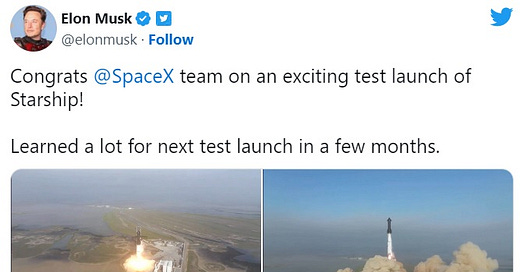Continuous Improvement (Part 1): The Winning Formula through Visionary Leaders
Henry Ford's assembly line revolutionized the auto industry. This post explores what is continuous improvement, its impact, and how visionary leaders nurtured it in their organisations.
What is Continuous Improvement?
Kaizen is a Japanese term meaning "change for the better" or "continuous improvement." It is a philosophy and methodology that involves making incremental improvements in all aspects of an organisation. Kaizen encourages involvement from all employees and focuses on small, manageable changes to drive ongoing improvement.
Continuous improvement can be applied to various areas of an organisation, such as production, customer service, marketing, and management. The goal is to achieve incremental improvements over time, leading to significant gains in overall performance and competitiveness.
Visionary Leaders embracing the Continuous Improvement
The concept of continuous improvement has been embraced by visionary leaders throughout history, leaving a lasting impact on their organisations and industries. Known examples are:
Henry Ford: Pioneering Continuous Improvement
Henry Ford's contributions to the automotive industry extend beyond the assembly line. He prioritized continuous improvement by streamlining operations, optimizing resources, and improving working conditions. Ford's focus on innovation and efficiency set the foundation for the concept of continuous improvement in later years.
Taiichi Ohno: Toyota Production System
Taiichi Ohno, widely regarded as the father of the Toyota Production System (TPS), embraced continuous improvement as a guiding principle. TPS revolutionized manufacturing by emphasizing waste reduction, employee involvement, and lean processes. Ohno's commitment to continuous improvement paved the way for Toyota's success and influenced manufacturing practices worldwide.
Steve Jobs: Pursuit of Excellence through Innovation
Steve Jobs, co-founder of Apple Inc., was a visionary leader known for pushing boundaries and fostering a culture of continuous improvement. Jobs' relentless pursuit of excellence and focus on innovation resulted in transformative products like the iPhone and iPad. His commitment to continuous improvement shaped Apple's success and created a culture of innovation within the organisation.
Jeff Bezos: Efficiency and Embracing Failure
Jeff Bezos, founder and former CEO of Amazon, instilled a culture of continuous improvement centered around efficiency and embracing failure as a learning opportunity. By prioritizing innovation, customer-centricity, and data-driven decision-making, Bezos fostered a culture that constantly sought improvements in processes, customer experience, and operational excellence.
Elon Musk: Learning from Setbacks
Elon Musk, the visionary leader behind SpaceX, has demonstrated a commitment to continuous improvement through his response to setbacks. In the recent incident where a SpaceX Starship rocket exploded, Musk's focus was not on the failure itself but on the lessons learned for future launches. This approach reflects a culture that embraces failure as a stepping stone to improvement and growth.
The Common Denominator
Henry Ford, Taiichi Ohno, Steve Jobs, Jeff Bezos, and Elon Musk are renowned visionaries who have left an indelible mark on their respective industries. While their accomplishments may seem diverse, they all possess a common set of skills that have been instrumental in implementing and driving continuous improvement within their organisations.
Problem Solving Skills:
These visionary leaders excel in problem-solving by identifying challenges and developing structured approaches to overcome them. They possess the ability to analyze complex situations, break them down into manageable components, and propose innovative solutions. This skill allows them to tackle obstacles head-on and drive continuous improvement across various aspects of their organisations.
Communication Skills:
Effective communication is crucial for driving continuous improvement initiatives. These leaders possess excellent communication skills, enabling them to articulate their ideas clearly and persuasively. Whether presenting their vision to colleagues, stakeholders, or the public, their ability to convey concepts and gain buy-in plays a pivotal role in implementing continuous improvement strategies.
Teamwork Skills:
Collaboration lies at the heart of continuous improvement, and these leaders understand the significance of effective teamwork. They actively listen to others, value diverse perspectives, and foster an environment where every team member feels empowered to contribute. By fostering a culture of collaboration and shared goals, they drive collective efforts towards achieving continuous improvement objectives.
Analytical Skills:
Analytical skills are essential for identifying patterns, trends, and areas for improvement. These leaders have a keen eye for data analysis and leverage it as a critical aspect of continuous improvement. By analysing data, they gain valuable insights that inform decision-making and facilitate targeted improvements in processes, products, and overall performance.
Project Management Skills:
Continuous improvement often involves the implementation of complex projects. These leaders possess exceptional project management skills, enabling them to plan, organize, and monitor the progress of improvement initiatives. Their ability to allocate resources effectively, manage timelines, and adapt to changing circumstances ensures the successful execution of continuous improvement projects.
Leadership Skills:
Above all, these visionary leaders exhibit exceptional leadership skills. They lead by example, embodying the principles of continuous improvement and inspiring others to do the same. Through their passion, dedication, and vision, they create a culture that embraces continuous improvement and empowers employees at all levels to strive for excellence.
Conclusions
Visionary leaders have left a lasting impact on their industries by cultivating cultures of continuous improvement. Through their commitment to innovation, efficiency, employee empowerment, and a willingness to learn from failures, they have built organisations that consistently strive for excellence. By embracing the principles of continuous improvement, organisations can drive innovation, enhance efficiency, and achieve sustainable growth in today's dynamic business landscape.
They all have in common embodying a set of core skills that drive continuous improvement. By recognizing and nurturing these skills, aspiring leaders can cultivate a culture of continuous improvement and make their own mark in their respective industries.
References
The Guardian. Elon Musk’s SpaceX Starship rocket blows up minutes after launch



